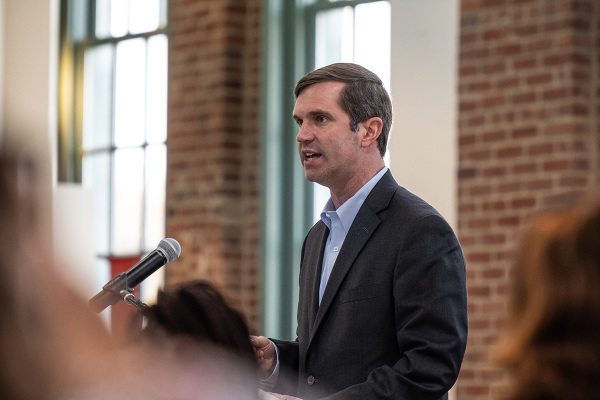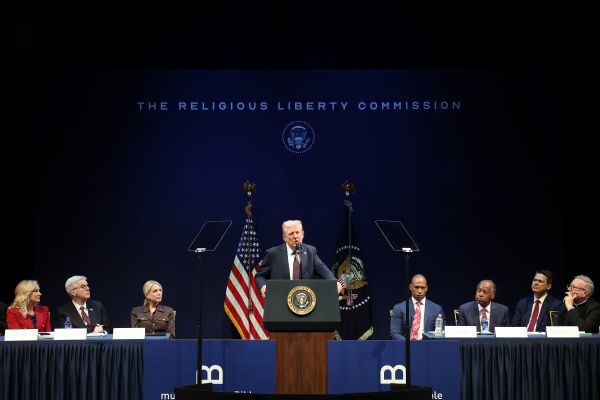Why Churches Talk the Great Commission but Don't Do It
In seventeen years of doing church consulting, no church leader has said to me, "Our church really doesn't want to do the Great Commission." I've worked with many churches, though, that proclaim the Great Commission but never get around to doing it. Here are my conclusions about why churches so often fit this description.
1. Church leaders talk the language without letting the biblical texts "sink in." They speak about the Great Commission because the Bible so obviously commands it (Matt. 28:18-20, Mark 16:15, Luke 24:45-47, John 20:21, Acts 1:8). I suspect many leaders, though, echo the words out of evangelical habit more than out of heartfelt burden. When we proclaim the message without obeying the command, the words have not settled firmly in our heart.
2. Pastors are themselves not committed to this task. Again, leaders whose ministries are built on the Bible often do proclaim the mandate. I cannot say these words strongly enough, however: I have never seen a Great Commission church led by a pastor who was not himself deeply committed to the task. Unless a pastor bleeds for his neighbors and the nations to know Christ, the church he leads will not live out this burden, either.
3. Churches see the Great Commission as a task for full-time ministers or missionaries. This finding is reflective of a problematic clergy/laity divide in many churches, but we church leaders must take some responsibility here. Because we so often choose not to make disciples and delegate responsibilities, we propagate the idea that only "paid folks" can do this work.
4. Churches do not really believe nonbelievers are lost. If you want to find out what your church members believe, survey them anonymously. Ask them if they believe good people without a relationship with Jesus will go to heaven when they die. Find out what they believe about the fate of those who die without hearing about Jesus. You might discover many church members have a theology that does not require taking the gospel to the nations.
5. Some leaders settle with partial obedience to the Great Commission. The Great Commission passages resound with proclaiming the Word, making disciples, teaching obedience, reaching the nations, and relying on the Spirit. Some churches focus, though, on evangelism while failing to teach believers. Others emphasize discipleship but do not evangelize. Some influence their community but never touch the nations; others focus on global needs but miss their local community. These congregations may be partially obedient to the Great Commission – but partial obedience is also disobedience at some level.
6. Churches tell members to do the Great Commission without teaching them how. Most churches are guilty here. We tell folks to share the gospel with their neighbors but seldom train them to do so. We speak about discipling others, yet expect members to learn on their own how to do it. Likewise, we challenge folks to go to the nations without adequately assuring them of training and support. When we tell without teaching, we shouldn't be surprised when our churches only talk about the Great Commission.
7. Church members fail to see the world around them. The world is among us – as our neighbors, our co-workers, our store clerks, our teachers – but we fail to see them as sheep without a shepherd (Matt. 9:36). Somehow, we hear the words of the Great Commission without recognizing the opportunities around us to develop gospel-centered friendships. At a minimum, seeing our neighbors with God's eyes should cause us to pray for the world represented among us.
8. Church members don't know missionaries. We know that mission work matters – after all, the Bible tells us so – but many church members have never "put on a face on" that work. They know no international missionaries. They seldom even think about "missionaries" serving in North America. Thus, they know few stories of the amazing work of God around the world. Frankly, I lay this responsibility at the feet of church leaders as well: Great Commission pastors will introduce their church to Great Commission people.
9. Churches confuse "sheep swapping" with the Great Commission. Transfer growth among churches is not always negative, but it is seldom Great Commission growth. If a church is not reaching non-believers, baptizing them, teaching them to obey Jesus' commands, and taking the gospel to the nations, they are not doing the Great Commission. They may, in fact, be only talking about it.





















